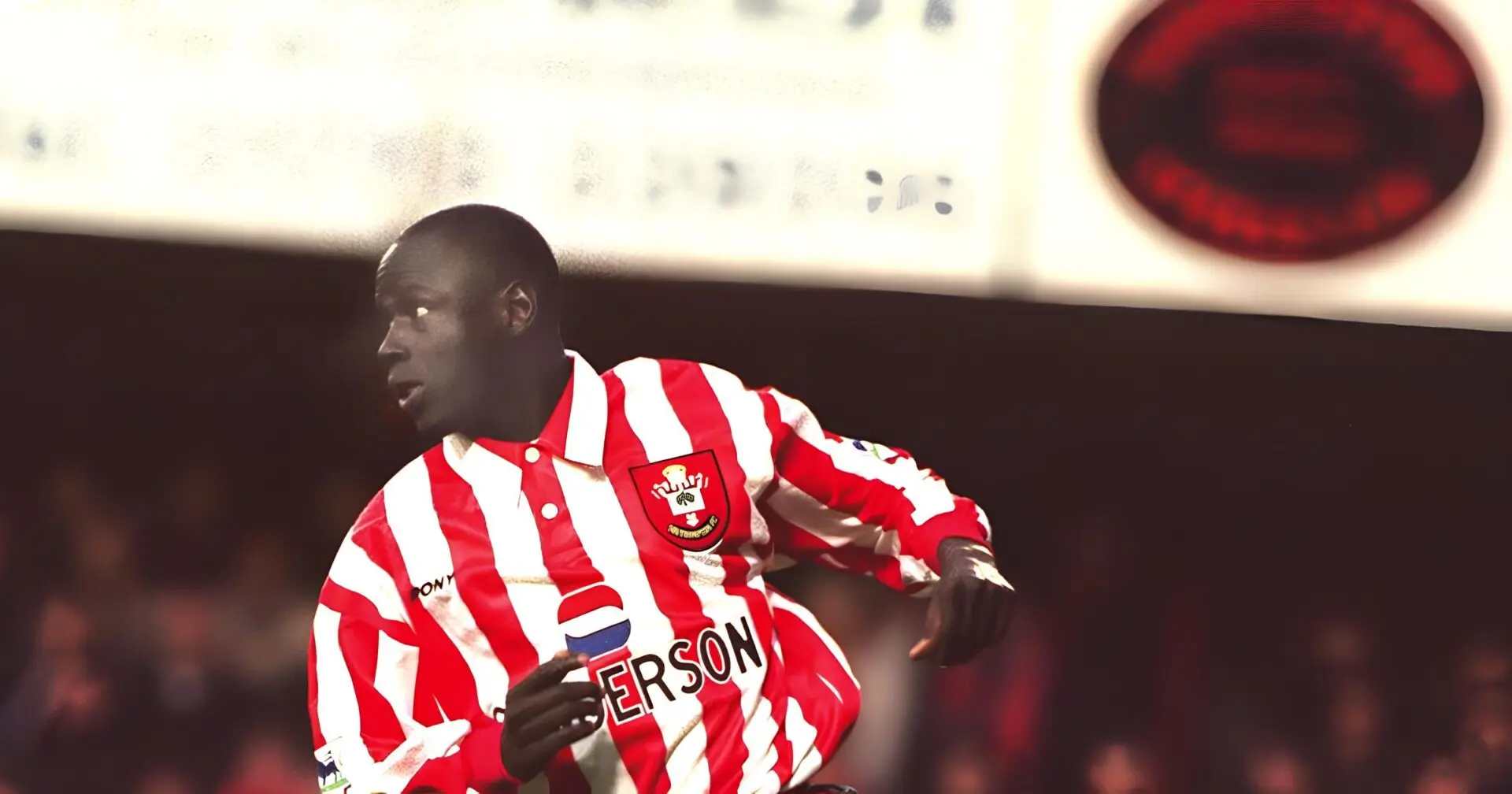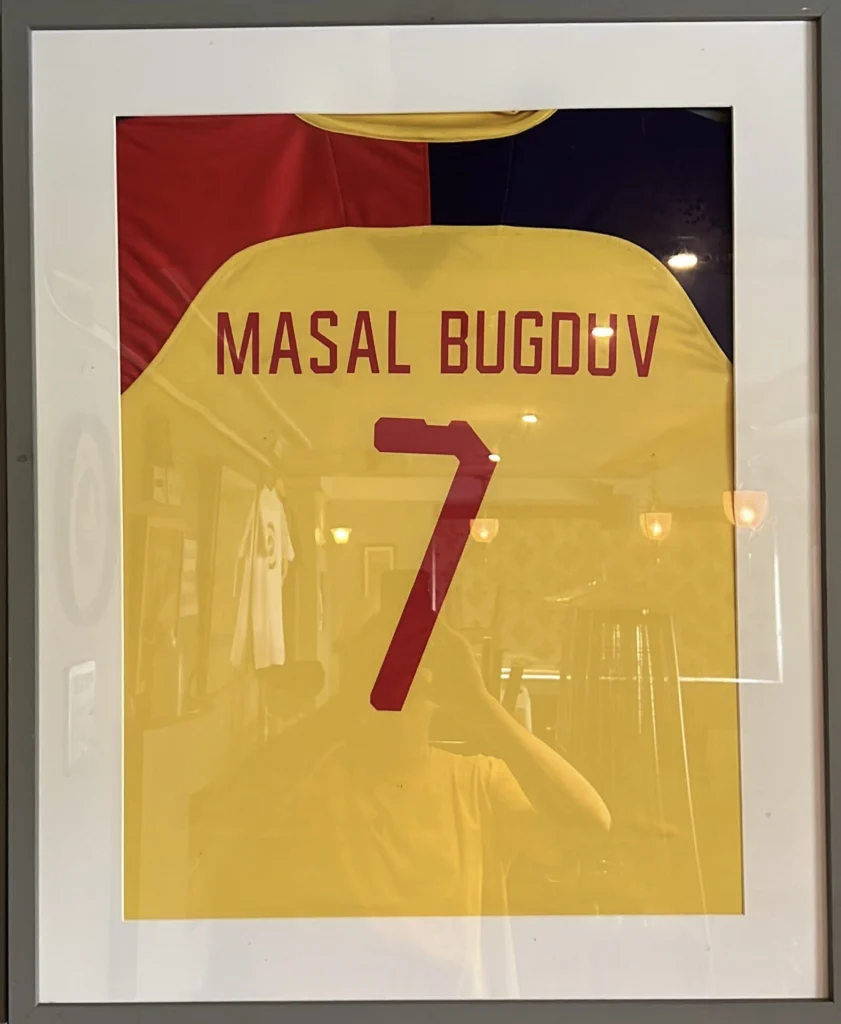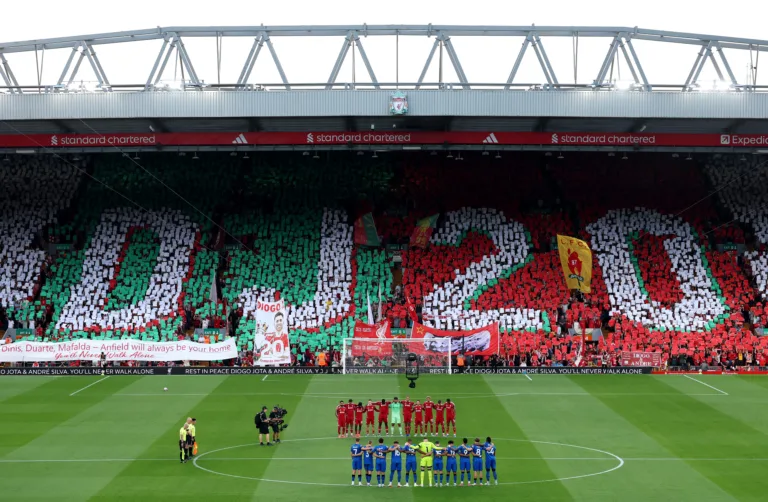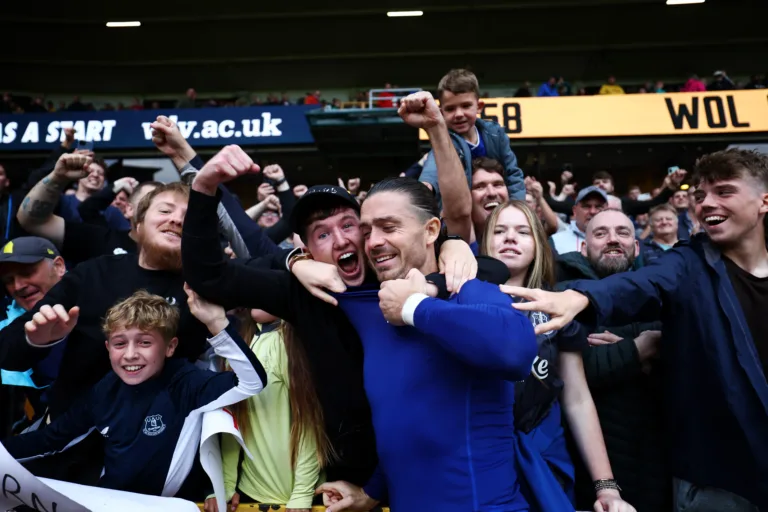The Football Fakes: The Game’s Greatest Impostors
Imagine turning on the TV to watch your club’s new signing make his debut, only to realise within minutes that he can’t even trap a ball. Now picture discovering that this same player had convinced your manager he was an international star with nothing more than a few phone calls and a smooth story.
That’s exactly what happened at Southampton in 1996 when Ali Dia, a name now etched in Premier League infamy, ran onto the pitch. Recommended, supposedly, by Ballon d’Or winner George Weah, Dia’s signing looked like a minor coup. What followed was one of the most embarrassing performances English football has seen. Within 53 minutes, he was hooked off, and the truth quickly surfaced: the man was a complete fraud.
Ali Dia is often wheeled out as football’s ultimate con artist. But here’s the kicker: he’s just one of many.
Football has always been a magnet for dreamers, bluffers and outright fraudsters. The game’s global reach, chaotic transfer markets and obsession with unearthing the next big thing have provided fertile ground for chancers to slip through the cracks. Some faked their ages, others their identities. A few invented entire careers. And incredibly, some even made a living in the game without kicking a ball.
In this article, we’ll pull back the curtain on 14 of football’s greatest impostors. From Carlos “Kaiser” Henrique Raposo, the Brazilian who partied his way through a fake career, to Masal Bugduv, the Moldovan wonderkid who never existed, these are stories of bluff, bluster and sometimes breathtaking audacity.
So buckle up. You’re about to meet the fakes who fooled football, and the game will never look quite the same again.
Carlos “Kaiser” Henrique Raposo: The Striker Who Never Scored
Carlos Henrique Raposo, better known as “Kaiser,” pulled off one of the most remarkable scams in football history. Born in Rio de Janeiro in 1963, Kaiser had the athletic build, charisma and contacts to open doors at some of Brazil’s biggest clubs. What he didn’t have was the skill to play professional football, yet that never stopped him from carving out a career that spanned more than a decade.
Kaiser’s method was simple but brilliant. He would charm his way into clubs like Botafogo, Flamengo and Vasco da Gama, impressing at first glance. Once signed, he would fake injuries, often claiming muscle strains, to avoid playing. While sidelined, Kaiser became a popular figure in the dressing room, buying drinks for teammates, forging friendships with stars like Romário, and entertaining everyone around him. He also used planted rumours of interest from other clubs to keep his contracts rolling.
One of the most famous moments came at Bangu when the club president ordered him to play. Facing exposure, Kaiser provoked a fight with fans during the warm-up and got himself sent off before even entering the pitch. He moved between clubs using this playbook for years. Only in retirement did the full story come out, and rather than hide it, Kaiser embraced his infamy. His story became the stuff of documentaries, a strange example of how charm and cunning can sometimes matter more than talent in football’s chaotic world.
Ali Dia: The Premier League’s Most Famous Fraud
Ali Dia’s name has become a punchline in English football, and for good reason. In November 1996, Southampton manager Graeme Souness received a phone call from someone claiming to be George Weah, the FIFA World Player of the Year. The caller recommended his “cousin” Ali Dia, a Senegalese international who had supposedly played for Paris Saint-Germain. Impressed, Souness handed Dia a short-term contract.
Dia’s big chance came against Leeds United. He was subbed on for Matt Le Tissier, but it quickly became obvious that he was nowhere near Premier League level. His touch was clumsy, his movement awkward, and he looked lost among the professionals. Within 53 painful minutes, Souness had seen enough and subbed him off. The dressing room soon learned the truth: Dia had never played top-flight football and certainly was not George Weah’s cousin.
After his brief moment in the spotlight, Dia faded into obscurity, turning up in lower-league football before disappearing entirely. His story lives on as the ultimate example of how desperation and a well-timed phone call can open doors in football. Ali Dia’s cameo remains one of the strangest and most embarrassing episodes in Premier League history.
Medi Abalimba: The Conman Who Played Celebrity Footballer
Medi Abalimba was once a promising footballer, rising through the ranks at Derby County and earning a reputation as a powerful midfielder. But his career stalled, and instead of accepting life outside the spotlight, Abalimba turned to fraud. He began posing as Premier League players, living a luxury lifestyle funded by lies, stolen credit cards and charm.
Abalimba targeted hotels, restaurants and high-end stores, convincing staff he was a top-flight footballer. He claimed to be Chelsea winger Gaël Kakuta on several occasions, running up massive bills, hiring private jets and even convincing women to lend him thousands of pounds. His scams were slick and audacious, fuelled by a taste for luxury and a refusal to give up the image of success.
Eventually, the law caught up with him. In 2014, Abalimba was jailed for four years after pleading guilty to multiple counts of fraud. Even after his release, reports emerged of further scams. His story is a sharp reminder that in football, sometimes the hunger for status and fame leads people far away from the pitch and deep into deception.
Alessandro Zarrelli: The Italian Who Fooled British Football
Alessandro Zarrelli arrived in Britain with a smooth Italian accent, impressive-looking CV and a fake letter from the Italian FA claiming he was a promising youth international. He approached lower-league clubs across the UK, offering his services as a talented midfielder who just wanted a chance to shine.
Remarkably, several clubs fell for it. Zarrelli had short stints at teams like Bangor City, Lisburn Distillery and Connah’s Quay Nomads, bouncing between trials and contracts. His story fell apart when media outlets exposed the truth: Zarrelli was not a rising star from Italy, but an amateur footballer with no professional pedigree. He had sent out dozens of fake letters, relying on charm and forged paperwork to win over clubs desperate for talent.
Unlike some others on this list, Zarrelli wasn’t motivated by money, but by a desperate dream to become a footballer. He continued playing at amateur levels even after being exposed. Sadly, Zarrelli passed away in 2018 in a car accident, but his story remains a curious and oddly sympathetic chapter in the world of football fakes.
Grégoire Akcelrod: The Man Who Faked His Way to Champions League Trials
Grégoire Akcelrod grew up in Paris dreaming of becoming a professional footballer, but there was one major problem, he simply wasn’t good enough. That didn’t stop him from creating an elaborate web of lies to chase his dream. Akcelrod built a fake CV, doctored photos to show himself in Paris Saint-Germain kit, and even put together a highlight reel featuring carefully edited footage to look like he played for PSG’s reserves.

Amazingly, his efforts paid off. Akcelrod earned trials at several clubs, including Bulgarian side CSKA Sofia, who were preparing for the Champions League. It was only when an eagle-eyed PSG official raised doubts that his story unravelled. Once the truth came out, the trials vanished and his hopes of a professional career were over.
Today, Akcelrod has rebranded himself as a motivational speaker and author, openly sharing his story. Rather than disappearing in shame, he now embraces his past, offering his tale as a lesson in ambition and the risks of chasing dreams the wrong way.
Jhon Minda: The Phantom Signing of Atlético Morelia
In July 2020, Jhon Minda popped up at Atlético Morelia’s stadium, posing for photos, sharing Instagram posts, and even telling local media he was ready to “bring back joy” to the fans. Onlookers assumed Morelia had quietly signed the Ecuadorian forward, especially after the club’s sporting director gave an interview hinting at new arrivals. Yet behind the scenes, the club’s management had no idea who Minda was or why he was there.
Digging by local journalists quickly pulled apart Minda’s story. His Wikipedia page had appeared only days earlier, his Instagram bio claimed a transfer to Morelia without confirmation, and no formal negotiations had taken place. ESPN and Goal reported that Minda had no professional record in Liga MX, and even his supposed past at Alebrijes de Oaxaca was unverifiable. When pressed for details, Minda hung up on reporters and swiftly locked his social media accounts.
Minda later apologised, explaining that he’d gone to the stadium as a fan and got caught up in the moment when reporters mistook him for a new signing. While he had trained with Morelia’s under-20s and had a brief trial elsewhere, he was never officially registered as a professional. Whether it was an innocent misunderstanding or a calculated grab for attention, Minda’s brief brush with the spotlight turned him into one of football’s strangest impostor stories.
Bernio Verhagen: The Agent’s Creation Who Fooled Clubs Worldwide
Bernio Verhagen, a Dutch amateur player with no professional background, somehow found himself signing contracts with clubs across multiple countries, including FC Dinamo-Auto in Moldova, Audax Italiano in Chile, and Viborg FF in Denmark. The key to his bizarre rise was a rogue agent who fabricated transfer offers, doctored highlight reels, and convinced clubs they were landing a talented winger.
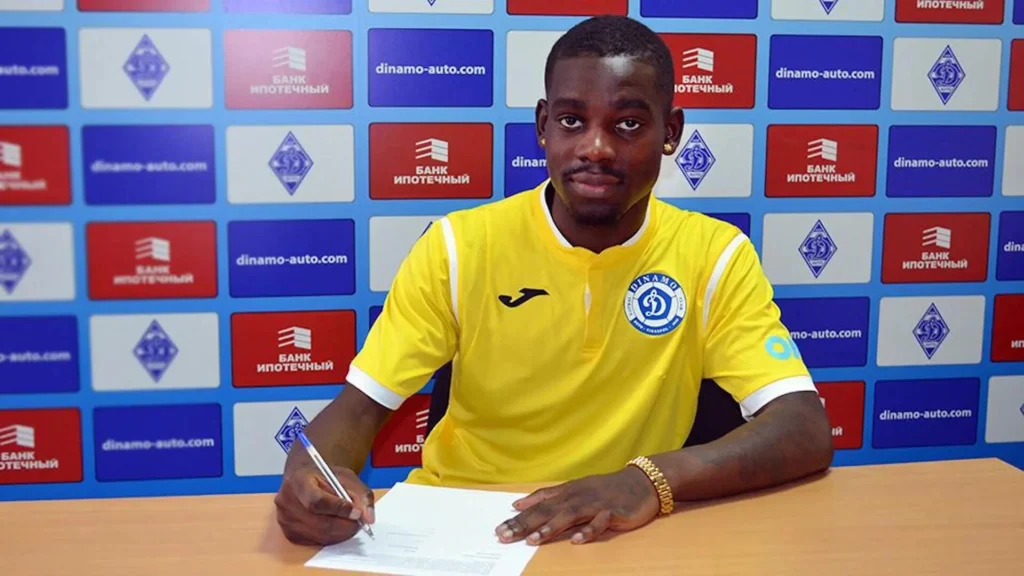
Verhagen’s scam unravelled when his on-pitch performances were impossible to ignore. At Viborg, he couldn’t control the ball, couldn’t complete simple drills, and had no clue how to function in a professional environment. It became clear that his move was based entirely on fraudulent agent negotiations rather than any real scouting or talent assessment.
His adventure ended with legal trouble in Denmark, where he was arrested on suspicion of fraud and other charges. Verhagen’s story is a case study in how agents, paperwork, and the frantic pace of global transfers can combine to produce one of the most shameless football frauds seen in years.
Barkley Miguel Panzo: The LinkedIn Footballer
Barkley Miguel Panzo became a viral name in 2018 when a fake online profile helped him sign for Lithuanian club FK Panevėžys. Panzo’s CV on LinkedIn claimed he had been a youth product at Queens Park Rangers and had even represented Angola at international level, with several goals to his name. The problem was, none of it was true.
The club, seemingly convinced by his online profile and some carefully circulated highlight clips, announced the signing to much fanfare. But football fans and media were quick to spot the holes in his story. QPR had no record of Panzo ever being at the club, and the Angolan national team had no idea who he was. Within days, the signing became a source of embarrassment for Panevėžys, who swiftly released him.
Panzo’s case highlighted the dangers of surface-level scouting and the ease with which fake credentials can spread in the internet age. A few exaggerated claims and some clever social media work were all it took for him to trick a professional club, at least for a brief and bizarre moment.
Masal Bugduv: The Wonderkid Who Never Existed
Masal Bugduv was once hailed as the next big thing in European football. Articles popped up in reputable outlets naming him as a Moldovan prodigy linked with Arsenal and Real Madrid, with rumours of a transfer fee in the millions. But there was one slight problem…. Masal Bugduv didn’t exist.
The entire saga was the creation of a prankster who seeded fake stories across blogs, forums, and even Wikipedia. By creating fake match reports, forged agent quotes, and social media chatter, they managed to fool media outlets into amplifying the myth. Before long, football fans were reading about Bugduv in newspapers and online transfer roundups, all without anyone having actually seen him play.
He was created by Irish journalist Declan Varley as a social experiment, and it worked. Varley created the fake player under the guise of Masal Bugduv as it sounds very similar to the Irish pronunciation of M’asal Beag Dubh (My Little Black Donkey). Taking the mick out of journalists who fell for it and calling them donkeys. Once the hoax was exposed, it became one of the most infamous football pranks of the internet era. So, the next time you hear about a wonderkid, and start talking about them as the next Messi, remember Bugduv.
Luciano Siqueira de Oliveira (Eriberto): The Winger Who Lied About His Age
Luciano Siqueira de Oliveira became a hero at Chievo Verona, dazzling Serie A with his pace and creativity under the name Eriberto Silva da Conceição. As Eriberto, he helped Chievo rise from a small provincial club to Serie A contenders, even securing a UEFA Cup spot. Behind the scenes, though, Luciano was living in fear. His real identity was a secret, and every police siren made him panic.
‘‘Every morning I woke up terrified I’d find the police outside my house,’’ he said. ‘‘I spent years living with the fear of being found out.’’
Luciano had assumed the false identity as a teenager when an agent convinced him to take on a younger name to break into professional football. Coming from poverty in Brazil, Luciano used a neighbour’s birth certificate and began his career at Palmeiras, before moving to Italy with Bologna and then Chievo. The deception worked brilliantly until 2002, when, wracked by guilt and eager to give his young son his real surname, Luciano confessed everything to the police in São Paulo.
The fallout was big: the Italian federation banned him, the Lazio move collapsed, and criminal charges were briefly considered. Yet the football world softened, and Luciano returned after a reduced suspension of 7 months, reclaiming his place at Chievo and even attracting attention from bigger clubs. Though he has since expressed regret, many believe he knew it was the only path to a professional career. Given the choice between a supermarket job in Brazil and Serie A stardom, it’s hard to imagine him doing anything differently.
Ángel Cheme: The Midfielder Who Stole an Identity
Ángel Cheme became a regular name in Ecuadorian football, playing for clubs like LDU Quito and Deportivo Cuenca. But in 2010, his world unravelled when it was revealed he had been living under a false identity for years. Cheme was actually three years older than claimed and had taken the identity of a man named Gonzalo Chila to boost his chances of signing with top clubs.
The scheme allowed Cheme to play as a younger prospect, extending his career and opening doors that might have stayed shut if he had used his real name. Suspicion arose when the real Gonzalo Chila, a devout Christian who had left football, discovered someone was playing under his name. Chila brought the case to the Ecuadorian Football Federation, sparking an investigation that exposed the truth.
Cheme was handed a one-year suspension, and his reputation never fully recovered. Although he later returned to football, the stigma of identity fraud followed him. His story remains one of Ecuador’s most talked-about football scandals, a cautionary tale of how ambition can push players into desperate choices.
Gourav Mukhi: The Indian Wonderkid who was a Man
Gourav Mukhi made headlines in 2018 when he scored for Jamshedpur FC in the Indian Super League, proudly introduced as the youngest goalscorer in the competition’s history at just 16 years old. His wide grin and youthful celebration became a symbol of the league’s bright future. But the fairytale was short-lived once questions began to surface about his real age.
It turned out Mukhi was not 16, but actually 21, and had previously been caught up in age-fraud controversies during youth tournaments. The Indian FA swiftly suspended him for six months, and Mukhi was forced to admit the truth. His impressive “teenage” rise was built on a lie that had worked its way into official records and club profiles.
Mukhi eventually returned to football after serving his suspension, but the episode left a mark on his reputation. His case highlighted the persistent issue of age fraud in Indian football, where weak documentation and a desperate hunger for opportunity often tempt players into dishonest paths.
Yusupha Yaffa: The Forward Who Lied About His Age
Yusupha Yaffa arrived in Italy from Gambia as a teenager and quickly caught the eye of AC Milan, where he joined the youth academy. Officially, Yaffa was registered as being born in 1996, making him one of the most promising young forwards in the system. But that promising label was built on false paperwork.
In 2016, Italian authorities discovered that Yaffa was actually born in 1992, making him four years older than claimed. The deception had allowed him to play against much younger opponents and gain opportunities that would have been out of reach for a player in his true age bracket. When the fraud was exposed, Yaffa was charged with providing false information to public officials.
Yaffa’s career never fully recovered from the scandal. After brief stints in Germany and lower-league football, his name became more associated with the age-fraud case than with his playing ability. His story is yet another reminder of how far some players are willing to go to chase a professional career in the intensely competitive world of football.
Gabriel Montaño: The Player Who Lied His Way Into Aurora’s First Team
Gabriel Montaño caused chaos in Bolivian football when it was discovered that he had stolen his brother’s identity to play for Club Aurora’s under-20 team, despite being too old for the competition. Montaño had used his brother’s ID to register as a youth player, slipping into the squad without raising suspicion. For a time, his deception went unnoticed, helping him progress in one of Bolivia’s most competitive youth setups.
The fraud came to light after Royal Pari, a rival club, lodged a formal complaint, demanding severe punishment. An investigation confirmed the identity theft, and the fallout was swift and heavy. The Sports Disciplinary Tribunal (TDD) of the Bolivian Football Federation sanctioned Aurora with a staggering 33-point deduction for the upcoming season, meaning they will start the league on minus 33 points. Montaño himself was handed a two-year suspension, while Aurora’s directors Jaime Cornejo and Sandra Valencia were banned from football for three years.
Aurora’s leadership has vowed to challenge the ruling and is preparing appeals to reduce or overturn the punishment. The case sparked outrage across Bolivian football, highlighting the damage a single act of deception can cause not just to a player’s career, but to an entire club’s future.
Savio Nsereko: The Million-Euro Mystery Man
When West Ham United splashed £9 million on Savio Nsereko in January 2009, they believed they were signing one of Europe’s most gifted young attackers. Born in Uganda and raised in Germany, Nsereko had shone at youth level, starring in Germany’s victorious Under-19 European Championship squad and earning comparisons to Gianfranco Zola. At just 19, he was handed the number 10 shirt at Upton Park, but his time in East London was a disaster. He made only a handful of appearances, struggled with the demands of English football, and was quickly sold to Fiorentina for a fraction of the fee.
What followed was a bizarre, downward spiral through football’s backroads. Nsereko played in Italy, Germany, Bulgaria, Romania, Kazakhstan and Thailand, never staying anywhere long. He went missing multiple times while under contract, at one point calling a club to say his stepbrother had been shot, only to be found hiding out days later. His behaviour grew more erratic, and in 2012, it reached a surreal low when he faked his own kidnapping in Thailand in an attempt to extort money from his family. He was eventually caught, arrested, and put on trial in Germany, a world away from the bright lights of the Premier League.
While some players struggle with fame, Nsereko never even got far enough to be famous. His story is a brutal mix of wasted potential, personal chaos and staggering immaturity. He had all the ingredients to succeed, but no structure to support him. Clubs kept giving him chances, hoping to revive the talent they had once seen, but it never resurfaced. Instead of becoming a household name, Savio Nsereko went down as one of the worst transfers in Premier League history.
Why Football Keeps Falling for the Fakes
What ties all these stories together isn’t only deception, but the conditions that make football so vulnerable to it. Clubs are desperate for the next big thing, chaotic scouting networks, poor record-keeping, and the glamour attached to the sport all combine to create opportunities for impostors to slip through. Whether it’s a player faking his age, inventing an international career, or posing for photos outside a stadium, the same hunger for success on both sides opens the door. While it does seem less likely to happen now than in the past due to the internet, age cheating is still massive in football.
Some of these cases are almost comical, others carry deep personal sadness, and a few have left lasting damage on clubs and careers. But they all remind us that in football, where the stakes are high and the rewards even higher, truth can sometimes be the first casualty. Fans love to believe in the next star, but these stories are a sharp reminder to question the myths before they take root.


